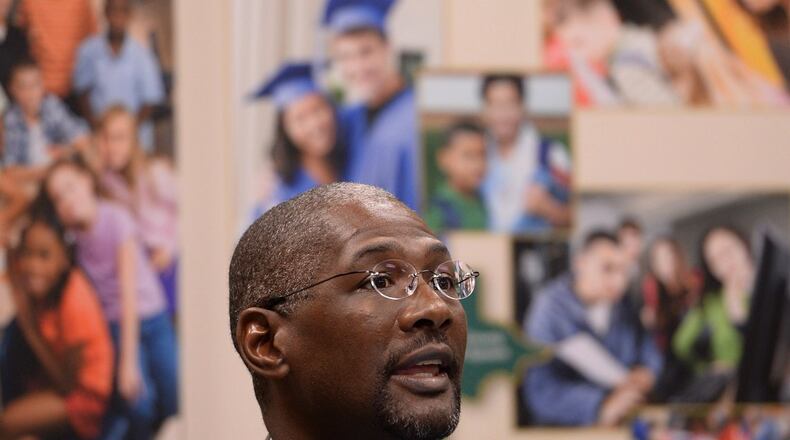DeKalb County School District officials have hired 69 uncertified teachers since the school year began, using a new district status that allows flexibility on some state rules to ease teacher recruitment woes.
Yet it continues to have teaching vacancies.
Monday, officials reported the district had 58.5 vacancies. A year ago, it had fewer, at 53.5.
With vacancies continuing to be a problem, are uncertified teachers really helping efforts?
School districts nationwide are looking at ways to deal with a national shortage of about 60,000 educators. Human resource directors at school districts across metro Atlanta say teacher recruitment efforts have been helped by the new Strategic Waiver School System status, which allows districts to employ uncertified teachers, among other things.
DeKalb County Board of Education Chairman Melvin Johnson said he believes vacancies persist because of longtime issues with how much teachers are paid in the district, though several raises have been approved since early 2015 to address the disparity.
“I believe we’re in a much better position now than we were when we didn’t have monies to give raises,” Johnson said.
“We have already cut some of the reasons, if the reasons were related to salary,” he said. “I believe we will retain those teachers now. I’m always concerned whenever we’re not 100 percent capacity in terms of positions being filled, but I understand the rationale as to why we will have vacancies throughout the year.
“Now, we only have to deal with variables we have no control over, how many spouses will be moving and how many retirements.”
Neighboring Gwinnett County has 30 vacancies, up from 21 this time last year. It also employs 11 teachers for whom it waived the certification requirement. Numbers in some other districts are flat, showing little change in the vacancy numbers as they utilize waivers to recruit teachers for hard-to-fill positions.
Atlanta Public Schools currently employs 39 teachers on certification waivers. Three of those are certified, but are teaching in content areas in which they are not certified. District spokeswoman Kimberly Willis Green said by email that the waiver allows instructors up to a year to become certified.
In Gwinnett County, 11 teachers are employed using certification waivers, down from 30 in December. About 30 vacancies exist.
In Cobb County, 14 teachers are on certification waivers, while the district has 11 open teacher positions.
Clayton County Schools officials did not supply information on the number of certification waivers being used in the district. In December, officials said they were using none.
Fulton County school officials did not respond to email or phone requests seeking information. In December, 45 teachers were on certification waivers, including waivers dating back to the 2014-2015 school year. The state’s largest charter school district since 2012, Fulton has used waivers the past several years to hire uncertified teachers. Ron Wade, Fulton County Schools’ chief talent officer, said in December there’s no process in place for Fulton’s uncertified teachers to gain certification.
“Certificate doesn’t always translate to effectiveness,” he said then.
DeKalb County School District Chief Human Capital Management Officer Leo Brown has said waivers are being used to hire teachers for hard-to-fill positions such as special education and science, technology, engineering and mathematics.
In January, DeKalb County School District officials announced discussions had begun on a route to certification for uncertified teachers. Little progress was made since. Everett Patrick said during the board's monthly meeting Monday that conversations were ongoing and reimbursements for certification costs were on the table.
About the Author
Keep Reading
The Latest
Featured



